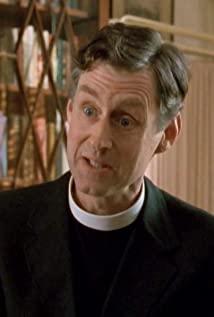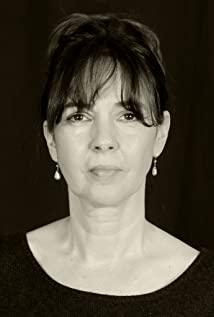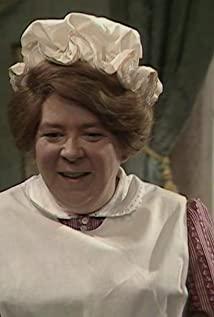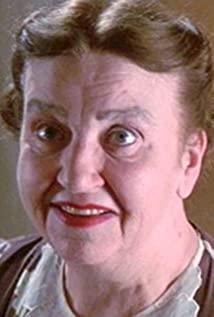A few years ago, I watched the 1981 TV version of "After the Wind and Rain", and now I have time to re-watch episodes 1-5 and 7 in which Sebastian appeared. Sebastian is undoubtedly the most brilliant character in the entire show. His romance, randomness, naivety, melancholy, sensitivity, and vulnerability make people infinitely loving. And it is precisely because the first half of his brilliance is too dazzling, Charles's life with him is too poetic, free, and beautiful, and the ending of his masochistic alcoholism and choosing to become Kurt as his partner is extremely regrettable. , even difficult to understand. I'm not going to explain Sebastian's life choices from a religious perspective. I just want to discuss whether the relationship between Charles, Sebastian, and Kurt is love or not.
Charles was undoubtedly infatuated with Sebastian, deeply infatuated. From the first moment I saw him sitting gracefully in the carriage, I was infatuated. When Sebastian brought him into his circle of friends and then took him to the family estate in Brideshead, Charles showed a deep fascination with Sebastian's appearance, words and deeds, and family background. There is envy in this fascination, because the life of a middle-class, mysterious Catholic aristocrat is beyond his reach. He wanted to be with Sebastian, partly because he envied each other's living conditions. He wanted to indulge in this vain beauty. Even though Sebastian repeatedly exposed his inner pain to him, he never showed any interest in getting to the bottom of it. He just wanted to have some fun with Sebastian, never really trying to get to know the man in front of him he felt he loved so much. So much so that during the whole process of Sebastian's mental state getting worse and worse, what he showed was incomprehensible and overwhelmed. He has never been able to understand Sebastian's heart, not just because of their different religious beliefs, because what he loves is Sebastian's deliberate indulgence in romantic fantasies in order to escape the pain in his heart. Because he has never understood Sebastian's character core, he can hardly be called loving this person. What he loves is the life that this person once brought to him, and this life, if it were changed to another People, actually. Later, he empathizes with Julia, even though Julia and Sebastian have different personalities at all, but Julia is also a member of the Marchman family, and with her he can relate to the "good old days" "A step closer. "The good old days" refers to the classical artsy British society before the decline of the aristocracy, as well as the extravagant and hedonistic youth he himself spent in his youth with the children of wealthy families. It can also be seen from the relationship between Charles and his father and later his wife and children that Charles is indifferent and restrained by nature. Except for the Follett brothers and sisters, he does not seem to have taken the initiative to love anyone else. And his so-called initiative is also very much like a passive being led by action. Under the traction of the attraction to a family and the family's blood and cultural halo, he clumsily walked to a pair of siblings and started The practice of love. But he lost his mother at a young age and lacked the love of his father. Because he had not received true love, he did not know how to truly love. So he couldn't and didn't know how to change the two partners he had. When they became no longer representative of the life he aspired to, he ceased his love. Just like later, he stopped loving Sebastian who was wandering outside, because at this time Sebastian had lost his former charm. Charles loves only A stage of Sebastian, a state of him, not the essence of him, the real him. From my understanding of love, this is not true love.
Sebastian has a strong possessiveness towards Charles, which starts with a certain amount of love, but intensifies and eventually completely drains the love in it. Why did Sebastian accept such a seemingly ordinary friend? Because Charles is interested in everything about him and is inclusive. Compared to Sebastian's other mostly self-centered wealthy kids, this middle-class friend is remarkably submissive to him. Also, at first this friend didn't know much about herself and her life, so it was safe to be with this person. He wanted Charles to keep his attention on himself, to be interested in himself but not to delve into himself. He wants to control the understanding of the two to a scale that is "safe" for himself. But gradually, after revealing his heart a little bit again and again, and the other party showing incomprehensible situations, Sebastian began to give up the attempt to communicate with each other. From this, he also found that Charles was far more interested in his external life than himself, especially his own family. This brings Sebastian briefly and painfully into a tug-of-war with his own family for Charles, and soon lets go. He admitted his failure and gave up on Charles completely. Throughout his time with Charles, his attitude toward Charles was clearly self-serving. I wonder if he's tried to get to Charles' heart, or really do something for Charles, unfortunately, he hasn't. If he carefully examines or understands deeply, he will find that Charles' solemnity and rational restraint as a middle-class gentleman and his rebellious heart are completely two types of people. If I ask him if he loves Charles' personality, I think he may just enjoy Charles' eager attention and thoughtful care, but he doesn't find the sparkle of Charles' personality. Charles' peaceful, stable temperament gave him a rare sense of security, but I don't think it was a character trait that would have developed an affection for him, which was evident in his later choice of Kurt.
I didn't pay much attention to the Sebastian-Kurt relationship before, I always saw the relationship as a simple comment on Sebastian's tragic ending, until recently when I read a movie review, someone pointed out , the relationship between these two people is worthy of in-depth discussion and writing. I just developed, and this relationship is still an important key to analyzing Sebastian's character. The presentation of the relationship between the two in the play is just a few shots and a few paragraphs of descriptions of others, and the original book does not focus much on the relationship between the two, but it is these few words, but it is extremely powerful, not only has a strong effect. The shock also gives people endless imagination. I think Kurt is a mirror image of Sebastian himself. His love for Kurt, then, makes perfect sense in light of his narcissistic tendencies and self-indulgence. It's hard to believe, but he loves Kurt more than Charles. Kurt is a down-and-out German soldier, a rogue, vulgar man who doesn't seem to resemble Sebastian, the handsome, graceful young man that people think of. But the author has a few strokes, and subtly set a mirrored background for the two people who met at the moment. They both lost a close friend who studied history (Kurt's friend died in battle, Sebastian broke off with Charles), and both went into self-abuse due to the sense of abandonment (Kurt shot own big toe, Sebastian drinking and self-imposed exile). Sebastian used to be a respectable aristocratic teenager, but when he met Kurt, he was already a vagabond with a broken heart, a sloppy appearance due to alcoholism, and a lethargic and depraved vagabond. The image of Han, this state is relatively consistent with Kurt, who was unable to support himself, disabled, drifting outside, and homeless at that time. Sebastian once said that he could not live without Kurt. Kurt also firmly pointed out that Sebastian would never abandon himself. Some people interpret this as Sebastian taking Kurt as the object of his own salvation, because he said that he was finally able to take care of others after he was used to being taken care of by others, and the other party was a desperate and desperately needy person. At that time, it got out of hand and couldn't be separated from it again. This has a saint-like self-sacrifice tendency in the religious connotation, which is Sebastian's self-redemption in faith. This sense of neediness that makes Sebastian addicted is not love, but a religious ritual of his self-punishment. But I still can't help but wonder, is there no love factor in it? It's hard to imagine that Sebastian lived with Kurt like a servant for several years, during which time Kurt was taken into the barracks, and Sebastian was running around for him, trying to rescue him. Later, his suicide also left Sebastian Desperate for life, he went further into self-indulgence and became a chorus of monasteries. As I mentioned earlier, the mirrored backgrounds of the two have indicated that they are in the same state of mind and are attracted to each other because of their similarity. In front of Kurt, Sebastian shows his true self, without covering up his inner pain, without pretending to be happy, without pretending to be lovable to escape pain. He saw in Kurt the selfish, self-willed, give-and-take side of his personality, and the side he couldn't really show in front of his relatives in the UK. At the same time, by taking care of Kurt, he gave Kurt the infinite tolerance and accommodation he had always wanted. So this is actually a twisted and sad love of falling in love with the mirrored self and using the ontology to satisfy the surrogate. But it is undeniable that Sebastian has found great satisfaction and real happiness in such a relationship. By loving the other self, he achieves the love of himself that cannot be achieved in his own body. Kurt is a side of Sebastian's personality, he only loves himself, not others, so what we see Kurt can't love others and only knows how to get. And Sebastian distorted the love of his once narcissistic self by splitting this side of himself, by transforming himself, and by loving Kurt. This is also what people call self-redemption. And when Kurt finally dies, this selfish and narcissistic side of Sebastian is completely gone. Sebastian wandered around the monasteries in North Africa in his later years, no longer conscious and dignified, drinking, smiling, and simply living. His ego and humanity are becoming more and more blurred, which Cordelia calls the state closest to God, the embodiment of divinity. hapiness. By loving the other self, he achieves the love of himself that cannot be achieved in his own body. Kurt is a side of Sebastian's personality, he only loves himself, not others, so what we see Kurt can't love others and only knows how to get. And Sebastian distorted the love of his once narcissistic self by splitting this side of himself, by transforming himself, and by loving Kurt. This is also what people call self-redemption. And when Kurt finally dies, this selfish and narcissistic side of Sebastian is completely gone. Sebastian wandered around the monasteries in North Africa in his later years, no longer conscious and dignified, drinking, smiling, and simply living. His ego and humanity are becoming more and more blurred, which Cordelia calls the state closest to God, the embodiment of divinity. hapiness. By loving the other self, he achieves the love of himself that cannot be achieved in his own body. Kurt is a side of Sebastian's personality, he only loves himself, not others, so what we see Kurt can't love others and only knows how to get. And Sebastian distorted the love of his once narcissistic self by splitting this side of himself, by transforming himself, and by loving Kurt. This is also what people call self-redemption. And when Kurt finally dies, this selfish and narcissistic side of Sebastian is completely gone. Sebastian wandered around the monasteries in North Africa in his later years, no longer conscious and dignified, drinking, smiling, and simply living. His ego and humanity are becoming more and more blurred, which Cordelia calls the state closest to God, the embodiment of divinity.
Lastly, I would like to review the sadistic scene when these three meet. The abuse here refers to the experience of the audience. Because the audience is watching from Charles' point of view, they can more empathize with this character, so most of them express difficulty in accepting this scene. But this is actually a cruel and rude performance of not really understanding Sebastian's heart and even imposing his own expectations and aesthetics on the character. When Charles witnesses Sebastian and Kurt, who are described as haggard and sloppy, and their close relationship, especially the incomprehensible accommodation of the former to the latter, his expression is very ugly, among which there are Confused, jealous, and even a trace of contempt and disappointment, he squeezed out a disguised ugly smile from time to time during the conversation. And when Sebastian saw Charles, he just mentioned it a little, he always remembered the days in Oxford, and after that, every word he said never left Kurt. It's not that Sebastian doesn't know Charles' infatuation with himself, but I think he also knows that that infatuation is only about the past, so his words that will sting the other side are a statement of farewell to the past, and also a statement to Charles. A mockery of trying to maintain decent performance. Sebastian had broken with the past, and he had long since given up his short-lived attachment to Charles. Speaking of which, their time together was only two or three years at the most, much less than his time with Kurt. The position of Charles and Kurt in Sebastian's heart is clear by comparison. Just because of the perspective problem, we viewers are only happy to see those beautiful and romantic plot scenes, and hope that Charles and Sebastian will stay that summer forever. We also envy the castle, the manor, the fountain, the church, the strawberries, the wine, the shade, because unlike Sebastian, we were born with those. From Sebastian's point of view, what has always been there is definitely not what he wants to pursue. It's sad that no one really understands what he wants, not even us viewers and readers who claim to love him. This is the deep reason for his distorted personality and romantic relationship. Kurt doesn't need to get to know Sebastian deliberately. When they meet, they recognize that each other is the same person as himself. Kurt's luck is to find the one who loves him, Sebastian's misfortune is to keep looking, never finding, to love himself by loving others.
View more about Brideshead Revisited reviews











